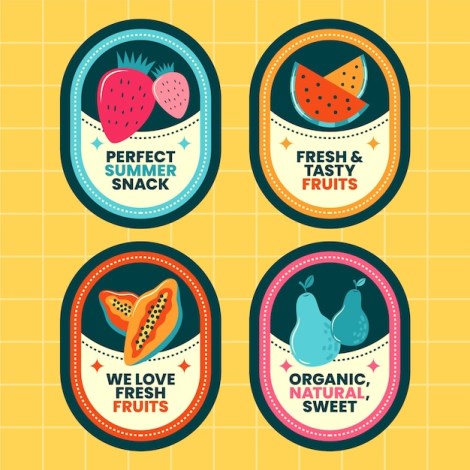Nectarine Nutrition Facts – A Guide to the Health Benefits of Nectarines

Nectarines are a delicious and nutritious fruit.
Nectarines are low in calories and fat but high in vitamins and minerals.
Nectarines are a great source of vitamin C, which helps boost the immune system.
Nectarines are packed with antioxidants that help protect the body against damage from free radicals.
Nectarines are a good source of dietary fiber, which aids in digestion and promotes a healthy gut.
Nectarines are a hydrating fruit, as they contain a high water content.
Nectarines are a tasty way to get essential nutrients like potassium, magnesium, and vitamin A.
Nectarines are a good option for anyone watching their carbohydrate intake, as they have a low glycemic index.
Eating nectarines can help improve skin health and promote a youthful appearance.
Nectarines are a natural source of beta-carotene, which is beneficial for eye health.
Nectarines are a great addition to a balanced diet for weight management, as they are filling but low in calories.
Nectarines are a refreshing and nutritious snack alternative to sugary processed foods.
Nectarines make a fantastic ingredient in smoothies, adding both flavor and nutrition.
Nectarines are a versatile fruit that can be used in both sweet and savory dishes.
Nectarine nutrition facts show that they are a good choice for those following a vegan or vegetarian diet.
Nectarines are a portable and convenient snack option for busy individuals.
Nectarine Nutrition Facts – A Guide to the Health Benefits of Nectarines part 2
Nectarines can be enjoyed on their own or paired with other fruits for a colorful and nutritious fruit salad.
Nectarines contain bioactive compounds that have been associated with reduced inflammation in the body.
Nectarines are a great alternative to high-sugar desserts, as they are naturally sweet but have a lower sugar content.
Nectarines provide a natural energy boost due to their carbohydrate content.
Nectarine nutrition facts highlight their high vitamin E content, which is beneficial for skin health.
Nectarines are rich in dietary fiber, aiding in healthy digestion and preventing constipation.
Nectarines are a delicious way to stay hydrated, especially during hot summer months.
Nectarines are a good source of iron, which is important for oxygen transport and energy production in the body.
Nectarines are a great source of folate, a vital nutrient for pregnant women to support healthy fetal development.
Nectarines are a guilt-free way to satisfy a sweet tooth while still maintaining a healthy diet.
Nectarine nutrition facts show that they are naturally low in sodium, making them a heart-healthy choice.
Nectarines can be enjoyed fresh, grilled, or baked, offering a variety of culinary options.
Nectarines can be pureed and used as a healthier alternative to sugary spreads or jams.
Eating nectarines can help improve bone health, as they contain essential minerals like calcium and phosphorus.
Nectarines are rich in antioxidants that have been linked to a reduced risk of chronic diseases, such as heart disease and cancer.
Nectarines are an excellent source of vitamin K, which plays a crucial role in blood clotting and bone health.
Nectarines are a great post-workout snack, providing quick carbohydrates to replenish energy stores.
Nectarine nutrition facts reveal that they are packed with vitamins and minerals that support overall immune function.
Nectarines can be crushed and added to yogurts or smoothie bowls for an extra burst of flavor and nutrition.
Nectarines are a tasty way to add variety to a healthy eating plan and prevent food boredom.
Nectarines, when consumed in moderation, can be part of a balanced diet for weight loss or weight maintenance.
Nectarines are a naturally gluten-free fruit, making them a suitable option for those with celiac disease or gluten intolerance.
Nectarines can be included in homemade fruit popsicles, providing a refreshing treat with added nutrition.
Nectarine nutrition facts emphasize their high vitamin B6 content, which supports brain health and function.
Nectarines can be sliced and added to salads for a burst of sweetness and texture.
Nectarines, like other fruits, are a rich source of phytochemicals that have been linked to numerous health benefits.
Nectarines are a natural way to satisfy cravings for sweets, without resorting to processed or junk food options.
Nectarines can be used as a natural sweetener in baking recipes, reducing the need for added sugar.
Nectarine nutrition facts reveal that they are a natural source of prebiotic fiber, which nourishes beneficial gut bacteria.

